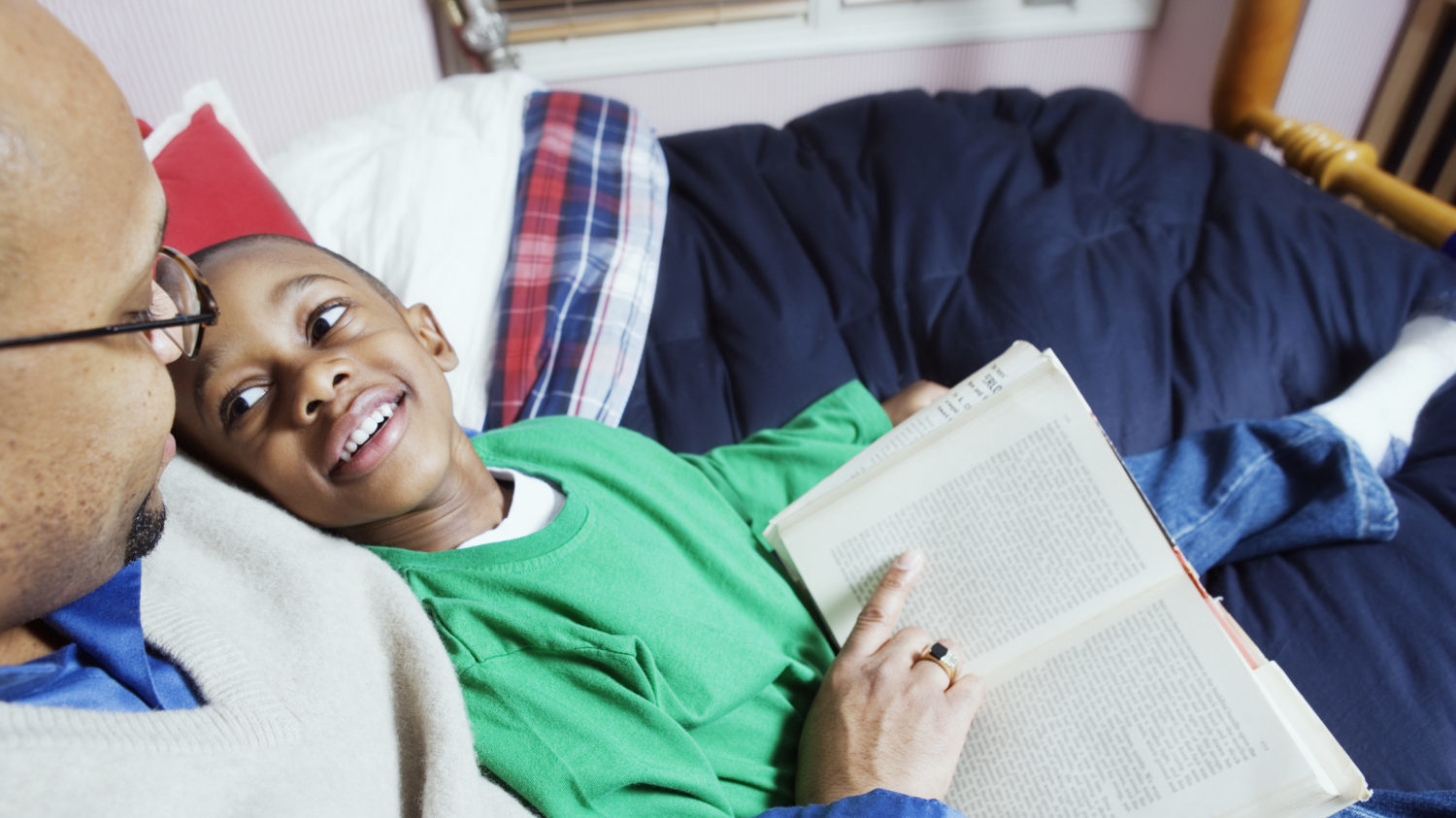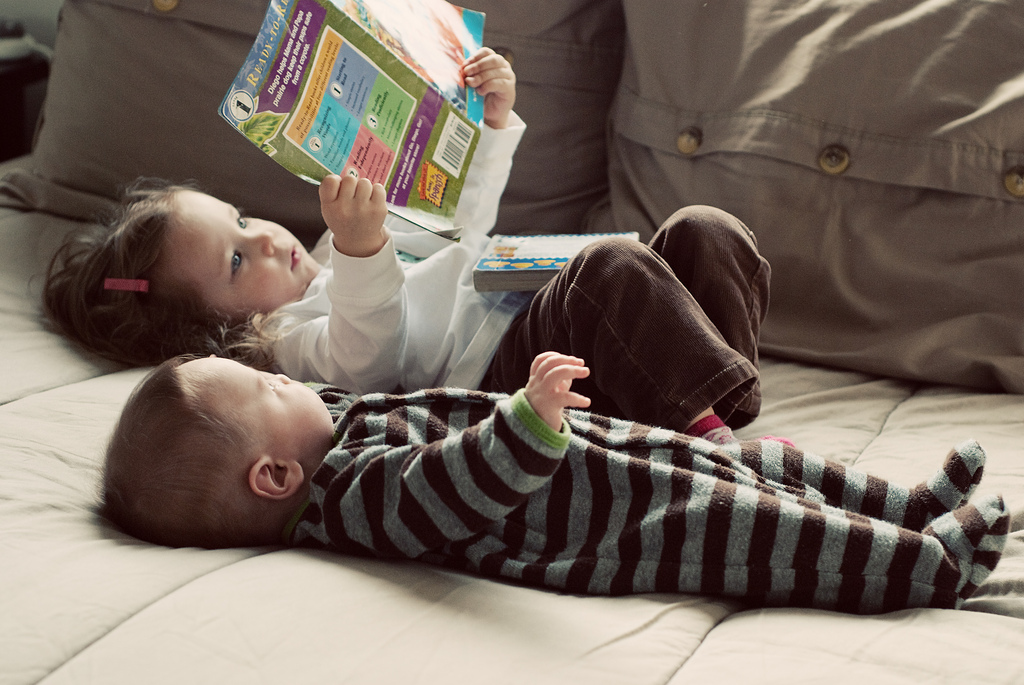Why You Should Read Real Books To Your Children

In an age of Kindles and iPads, sometimes it’s difficult to lay your hands on a real, live book. You remember, the kind with paper and a spine and that smells so good when you crack it open?
Though screens are the entertainment du jour for even our youngest generation, it might be time to retire some of the gadgets for a plain old book with a good story. In a recent column from The New York Times, pediatrician Perri Klass, M.D. explains exactly why those real-live books are so important for children.
First of all, Klass explains, the most important part about reading a book to your very young child is that it necessitates closeness and engagement. Aside from the fact that you can allow your teething newborn to gum a cardboard book (not so much an iPad), a parent will also be the one to make that story come to life.
On top of that, there has been a lot of work done in examining the science behind how electronic media affects children’s brains, learning styles and habits. A 2014 review of a number of studies on electronic storybooks gave good insights into the way these screens might help—or hurt—early learning.
For example, children with language delays or learning disabilities can benefit significantly from features in electronic books that “reinforce the connection between image and word.” That being said, extra features and in-book games may cause “cognitive overload,” which detracts from learning. And, most of all, researchers were concerned that screen time might cut into parent-child time.


According to Dr. Jenny Radesky, a developmental behavioral pediatrician and assistant professor of pediatrics at the University of Michigan at Ann Arbor, young children learn better when an adult is a part of the process.
“[Preschool children] learn better when there are not distracting digital elements, especially when those elements are not relevant to the story line or the learning purpose,” she said in an interview with Klass.
On the other hand, reading (or being read to) encourages a number of mental growth opportunities. Instead of seeing the pictures, a child has to imagine for his or herself what the dragon might look like. Brain imaging has suggested that listening to stories “evokes visual images in children’s brains.” Those visual images are far stronger if children are read to on a frequent basis.
On top of that, Dr. Radesky points out, reading with a parent can encourage a deeper understanding of the story that an electronic reader can’t facilitate. A parent can draw comparisons to daily life while reading a story, further deepening a child’s experience in connecting with the story.
And not to be discounted is the benefit a parent receives from reading with a child. This is an opportunity for both physical closeness but also learning together, which isn’t something you can get from a gadget.
So should you throw away your iPad or e-reader? Not necessarily. But recognize that real, paper books are hugely important for creating a world inside your child’s brain that no one else can touch. As author Alice Hoffman said, “books may well be the only true magic.”





